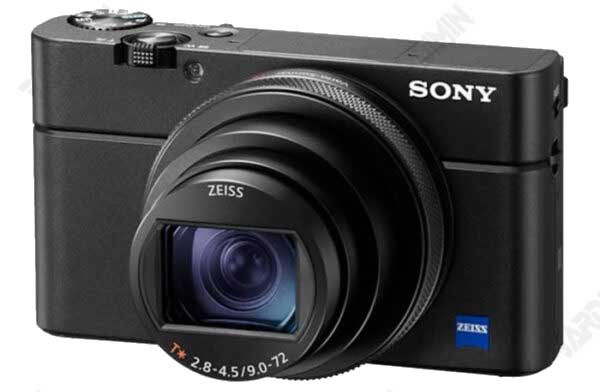Photography is an art that requires the right equipment. Choosing a camera that suits your needs is an important first step to improving the quality of your photos. In this article, we will compare DSLR and Mirrorless, two types of system cameras that are very popular today.
A digital camera is not just a tool for taking pictures; it is also an important factor that affects photo quality, shooting flexibility, and the development of photography skills. Choosing the right camera for your needs can significantly improve your photographic results.
The type of camera has an important role in determining the image quality and flexibility of photo shooting. Each type of camera has its advantages and disadvantages. Cameras with larger sensors typically produce sharper and better images in low-light conditions. The flexibility is also affected by factors such as interchangeable lenses, manual controls, and the ability to handle the RAW format for further editing.
Types of Digital Cameras and Their Differences
Digital photography now has many types of cameras designed to meet the needs of users. One of the most famous is the mobile phone camera (cameraphone), which has changed the way people photograph with the convenience and advanced features it offers.
Other Interesting Articles
a. Mobile Phone Camera (Cameraphone)
Cell phone cameras or cameraphones are the most frequently used photography tools. With the development of technology, the image quality of mobile phone cameras is increasing, even almost on par with professional cameras. However, cell phone cameras also have advantages and disadvantages.

Advantages of Mobile Phone Cameras (Cameraphone)
1. Practical and Always Available
One of the main advantages of a phone camera is its convenience. You don’t need to bring extra tools because the camera is already on your phone. It is ideal for impromptu photos or street photography.
2. Photo Editing Applications Available
Phone cameras usually come with built-in photo editing apps or other apps like Snapseed, Lightroom Mobile, or VSCO. It allows you to edit photos directly on your phone without the need to move them to another device.
3. Easy to Share on Social Media
With your phone’s camera, you can instantly share photos on social media such as Instagram, Facebook, or Twitter in no time.
Disadvantages of Mobile Phone Camera
1. Lens with Fixed Focal Length
Most mobile phone cameras are equipped with lenses that cannot be changed, in contrast to DSLR or Mirrorless cameras. This makes it difficult for you to take photos from different angles and distances.
2. Limited Image Quality and Resolution
Even though mobile phone camera technology is getting better, the image quality produced is still inferior compared to professional cameras. The smaller sensor makes it less suitable for printing large photos or performing complex edits.
3. Poor Performance in Low Light
Cell phone cameras usually have small sensors, so their performance in the dark is often unsatisfactory. Images can look noisy or have spots when taken at night or in low-light areas.
4. Doesn’t Support RAW Format
Many phone cameras can’t take pictures in RAW format, which stores more image details. RAW format is essential for more professional photo editing.
b. Compact Camera
Compact cameras, commonly referred to as point-and-shoot, are the preferred choice for users who want a photography device that is practical, easy to use, and does not require a complicated setup. Although its popularity is starting to decline due to the presence of mobile phone cameras, some models still have excellent features that are not present in smartphones.
Compact cameras are perfect for those who don’t want to bother with the size and complexity of professional cameras like DSLR or Mirrorless. These cameras are designed for ease and practicality, although they have some limitations.

Advantages of Compact Cameras
1. Lightweight, Easy to Carry, and Affordable
Compact cameras are known for their small size and lightweight, making them very easy to take anywhere. It is also relatively more affordable compared to system cameras such as DSLR or Mirrorless, making it a good choice for beginners or casual photographers.
2. Equipped with a Good Zoom Lens
One of the advantages of a compact camera is the zoom lens that is already installed. Most compact cameras have zoom lenses with a wide range, allowing you to shoot from a distance without the need to change lenses.
